Wadjet Eye Interview: Urban Fantasy Adventure Unavowed Returns To World Of Blackwell Series
Adam Smith on March 29th, 2016 at 3:00 pm.
Part RPG, part adventure game,
Unavowed is the next project from Wadjet Eye Games founder Dave Gilbert and even though it features entirely new characters, it takes place in the same world as
the wonderful Blackwell series. I met with Gilbert at GDC and he explained the game’s origins and intricacies, as well as talking about his love of urban fantasy, and his development as a game designer and storyteller.
I was very sad when the Blackwell series ended and that was only partly due to story-related happenings. Most of the sadness related to saying goodbye to characters I enjoyed spending time with and might never see again.
Whether or not there will be cameos in Unavowed, I can’t say, but when I asked if there were any links between the two series, which both feature paranormal happenings on the streets of New York City, Gilbert did confirm that the game takes place in the same ‘universe’ that was host to the Blackwell games. He hadn’t wanted to close the door on that world, which had developed a fairly complex supernatural mythology all of its own, but had decided to move away from Blackwell.
“I don’t like the first Blackwell game at all now. I’m my own worst critic, I know, but I cringe when I think about some of the decisions I made there.”
He’s referring mainly to the flow of the storytelling, which utilises big textual infodumps to explain motivations and character backstories. There’s certainly an improvement from one game to the next, and that first game is undoubtedly the weakest of the five, but I think it works fine as an introduction. Gilbert disagrees: “Unavowed lets me revisit the world without that baggage. People don’t need to feel they have to take in the whole series, beginning with The Blackwell Legacy. Instead, they can start fresh with Unavowed, which sets up its own story with its own characters. And benefits from everything I’ve learned about game design over the last decade.”
The game is a full-on urban fantasy, inspired by the likes of Jim Butcher’s Dresden Files, of which Gilbert is a big fan. In the scenes I saw, there was demonic possession, magic and plenty of talk that was both arcane and esoteric. There was also combat. Sort of. There was a violent confrontation, at the very least.
“I was inspired by Jennifer Hepler’s suggestion that combat could be entirely removed from RPGs. If that were the case, why couldn’t an adventure game become more like an RPG by containing RPG-like choices and parties of NPCs?”
Unavowed is an adventure game, with all the pointing, clicking and puzzling you might expect, but it’s also an RPG without combat. Hepler is credited as story co-designer on the game and in one scene, the influence of her thoughts about RPGs without combat is clear.
A situation has developed, whereby two of the player character’s friends are being threatened by a creature that is blocking their path. Using the kind of logic that any adventure game fan will understand, the confrontation can be cut short if the player manages to manipulate the environment such that the creature ends up on the receiving end of a strong electric current.
Those two friends who accompany the player are chosen from a pool of five characters. And, yes, that means you’re building a party and each member has their own skills that can be used in various situations as well as unique dialogue. There’ll be a choice of playable characters as well, although that’ll be a case of picking male or female rather than selecting certain personality traits or skills. The player character will be the only unvoiced character in the game and that’s both an artistic choice and an end-result of pragmatic design. With two characters to choose from and a storyline that branches and provides multiple solutions to problems, there would need to be an enormous amount of audio for the player character alone.
Unavowed looks superb. Aesthetically, in that the art of long-time Wadjet Eye artist Ben Chandler is so well-suited to this noir-and-necromancy world and is seen at double the resolution of previous games, but also in terms of Gilbert’s decision to incorporate elements not normally associated with point and click adventures. That party system, for one, and branching choices with potentially dire consequences for another.
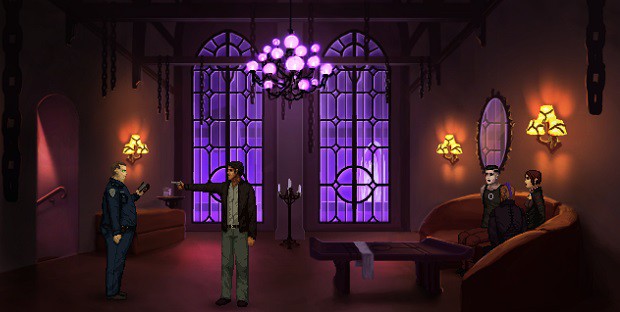
In speaking to Gilbert, I’m struck by how clearly he recognises the value of escapist fantasy in storytelling. While not noticeably a post-9/11 game in any political sense, the Blackwell games and The Shivah before them, seem like an effort to reframe the city and its potential to surprise in a way that is manageable and marvelous. Gilbert mentions the attack on the city as we’re talking, explaining that he had been unemployed at the time and had turned to Adventure Game Studio as a way to take his mind off what was happening. A pure form of escapism through creation that led to a career as both designer and producer of the finest adventure games since the days of Lucasarts.
His New York, as seen in the earlier games and again in Unavowed, is a world in which something weird and/or wonderful waits around every corner. It’s a city of possibilities and opportunities, some of which are thrilling and some of which are tragic. Although there are ghosts and demons, they’re stitched into familiar fabric in a way that makes them seem even more lurid and outrageous than they would in a dungeon or on a plain of volcanic ash. When I asked Gilbert about the presence of real-life New Yorker writer Joseph Mitchell’s presence as a character at the heart of the Blackwell series, his answer suggested that Mitchell fulfilled many of those escapist functions in a very different way to Butcher, Whedon and other urban fantasy writers.
“Mitchell was an extraordinary storyteller. He could make wonderful stories out of everyday experiences. And he could talk to anyone, in a bar or on the street. That’s not something I can do.”
There’s a fascinating connection between Gilbert’s admiration of Mitchell’s ability to discover stories through conversations with strangers – a device unavailable to him due, perhaps, both to the way the city has changed since Mitchell’s time and Gilbert’s own social confidence – and his admiration of works like the Dresden Files that seem like almost pure invention. Yes, they’re set in an approximation of the real world, but where there might be a gap in our understanding or in the drama, it is plugged with various mythological and supernatural borrowings.
Where Mitchell extracted the extraordinary from what many might see as ordinary folk (one of Mitchell’s lessons, I think, is that there is no such thing as an ordinary person), urban fantasy risks obscuring the ordinary entirely. I trust Gilbert and his team to find the extraordinary in the familiar rather than eliminating the latter entirely in pursuit of dark magicks and otherworldly passages. Anyone who has more than a passing familiarity with Mitchell’s work would find it difficult to dispute that he was an urban fantasist of sorts himself, who used his intellect and inventive reading of character and place to add flavour to the stories he discovered. Everything is changed in the retelling, whether it’s
the story of McSorley’s bar or one of many visions of faerie through the ages.
Every storyteller is an archaeologist, a reteller of tales, and Gilbert’s enthusiasm for his chosen genre is couched in respect for those who have gone before, whether their fantasies involved demons and djinns or derelicts and drunkards. Gabriel Knight explored history through the lens of lycanthropy and other aspects of the supernatural, and Gilbert has made a name for himself by reimagining New York’s peculiar mythology through its own urban legends.
The demonic possession and mages on the city streets of this new title might speak to a particular form of fantasy fiction, but Gilbert has a strong enough understanding of character and place to make Unavowed a distinct and empathetic contribution to that genre. And, hopefully, another unusual vision of the city itself.
Unavowed will be out sometime next year.













![Glory to Codexia! [2012] Codex 2012](/forums/smiles/campaign_tags/campaign_slushfund2012.png)














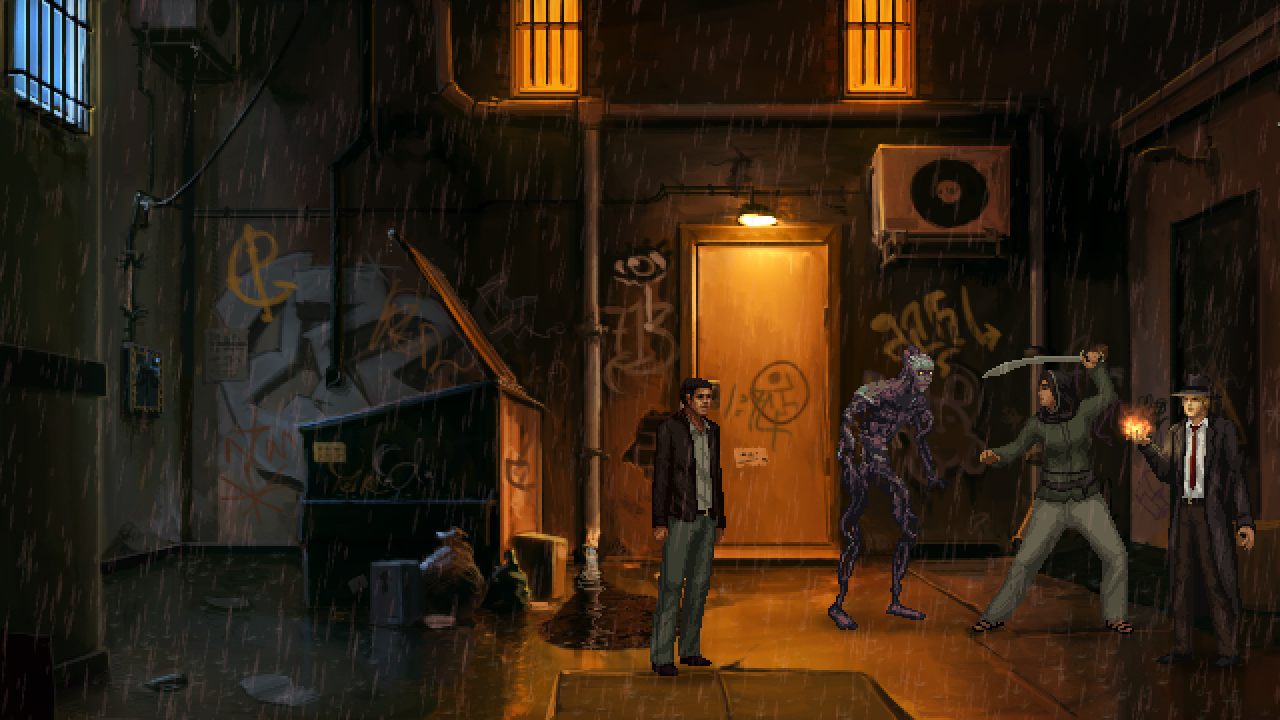
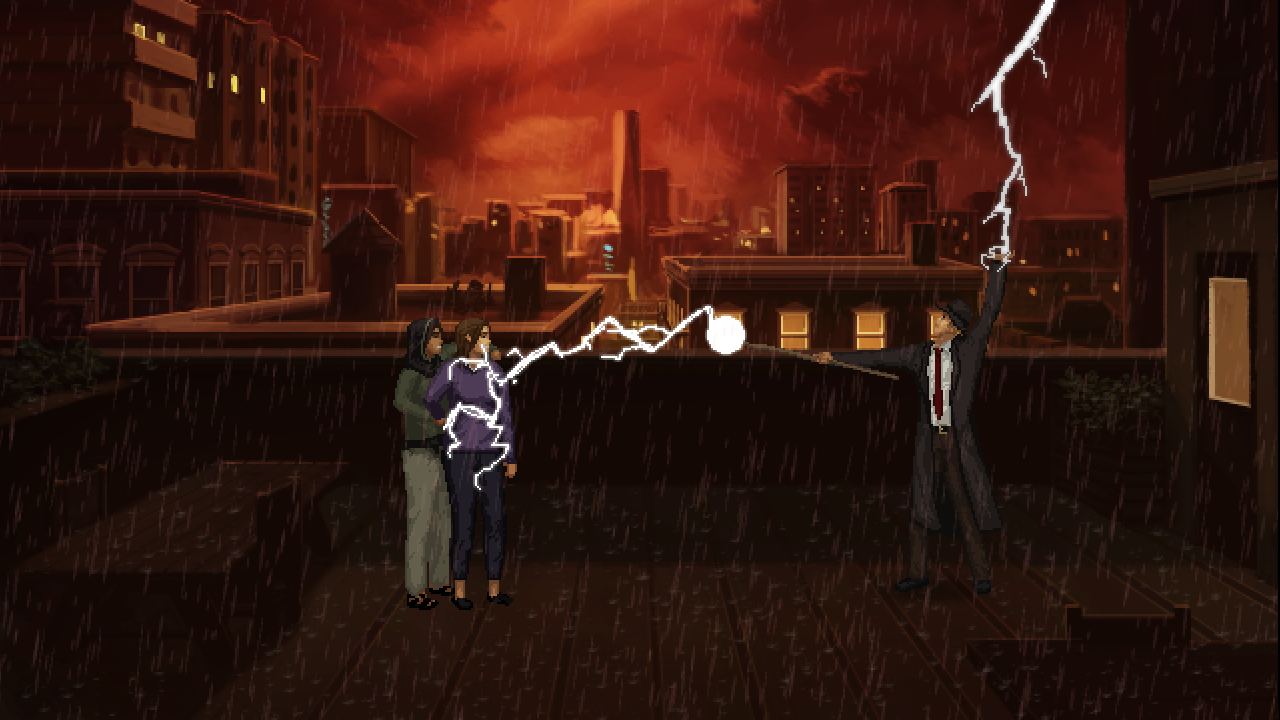
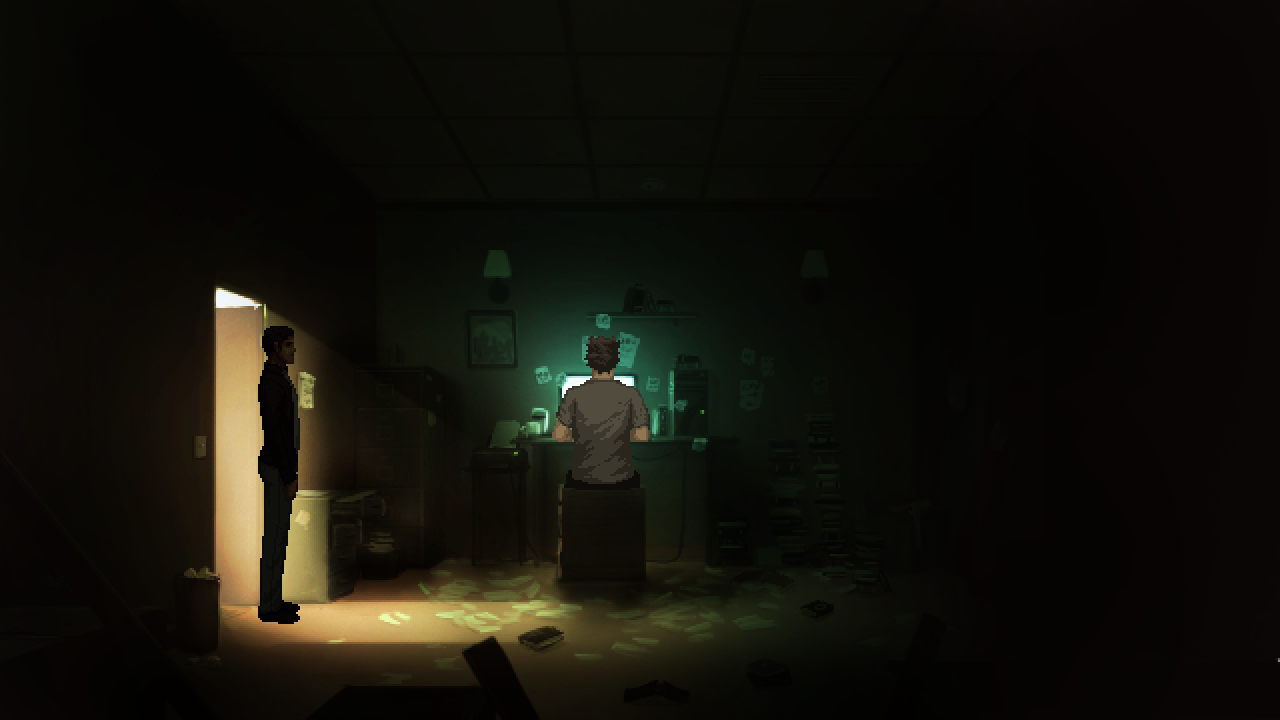
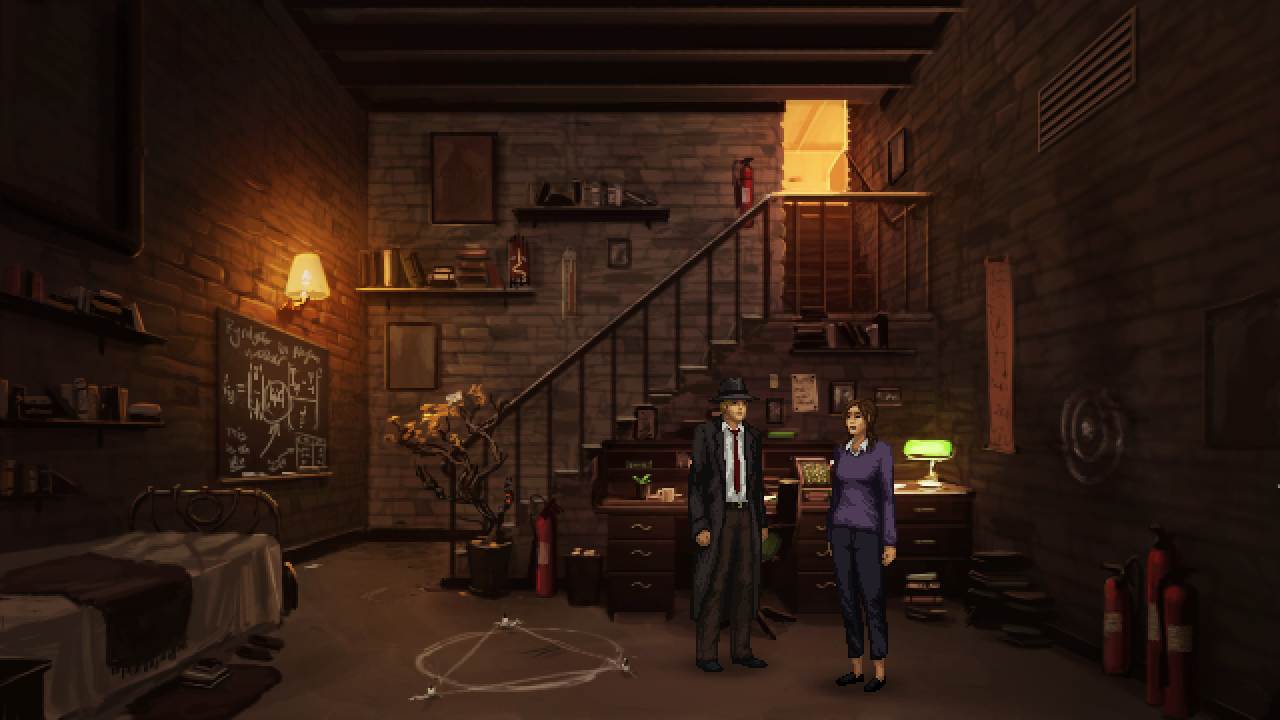
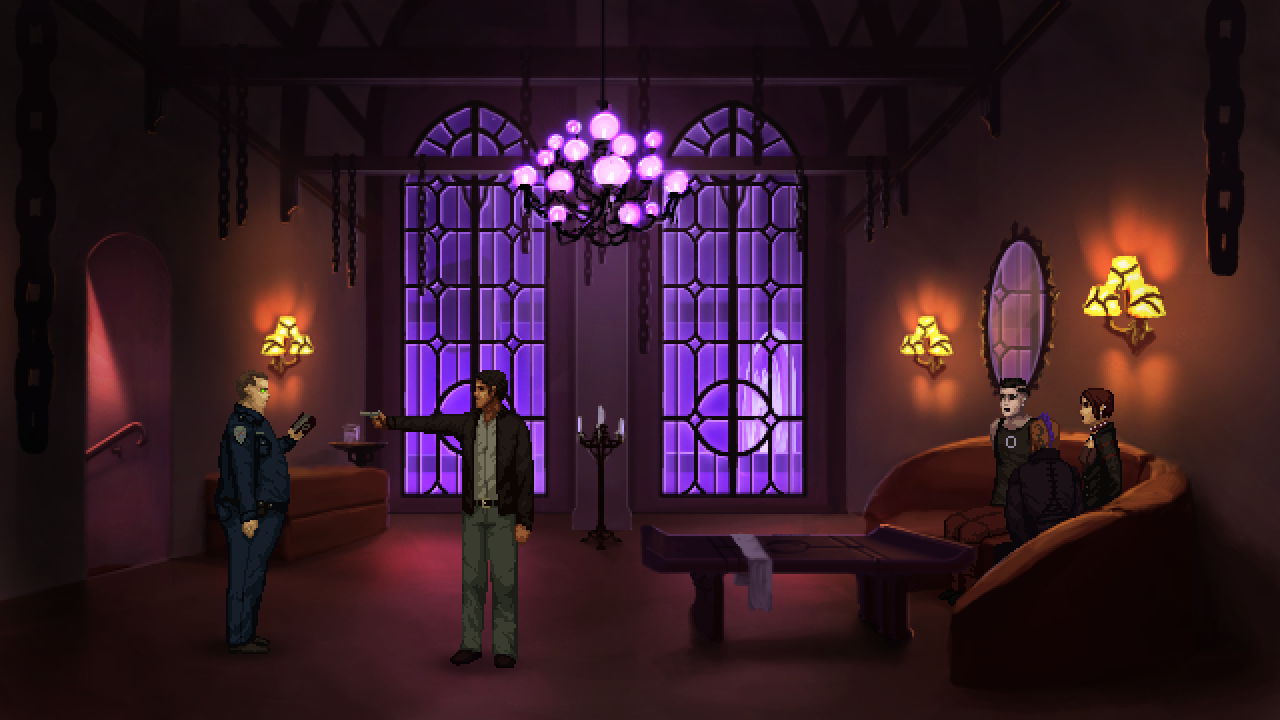
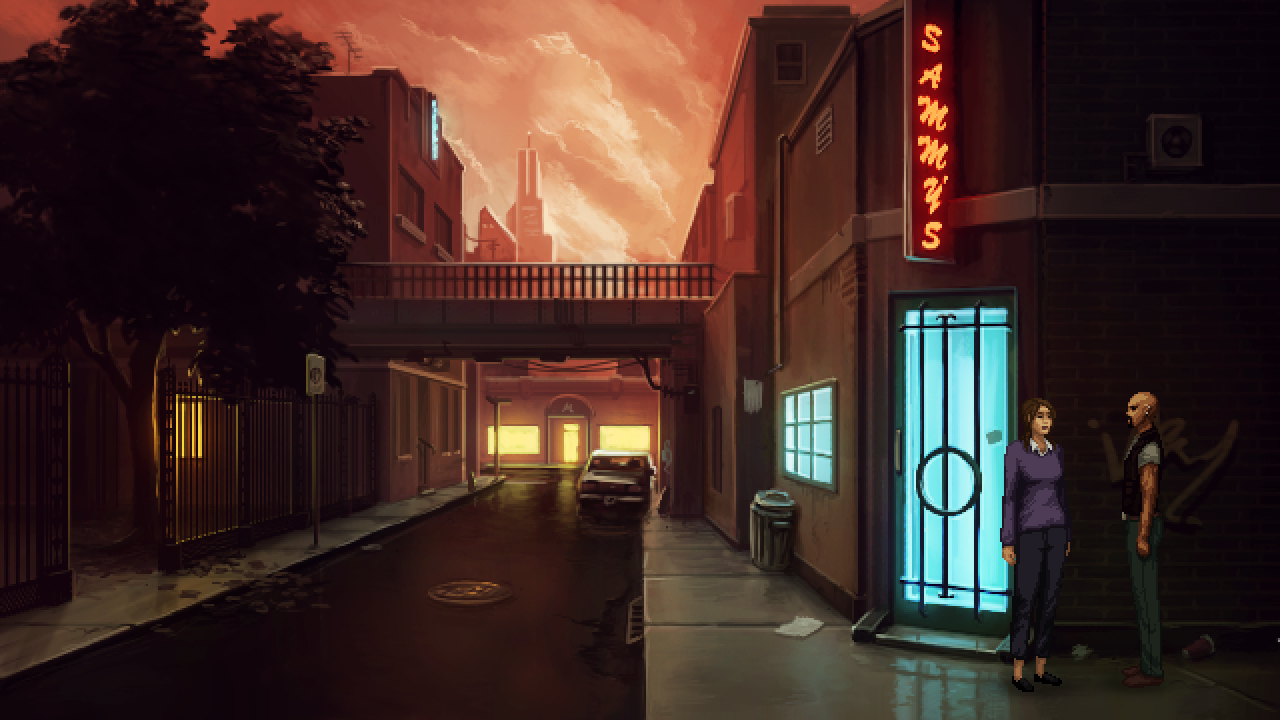


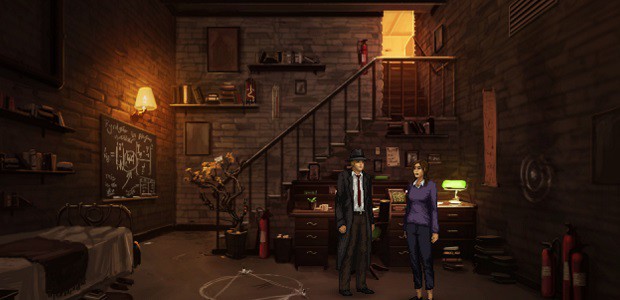
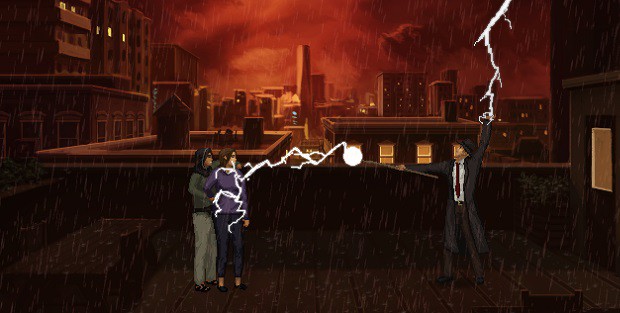
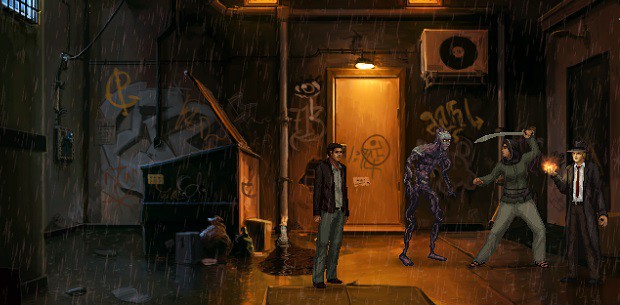

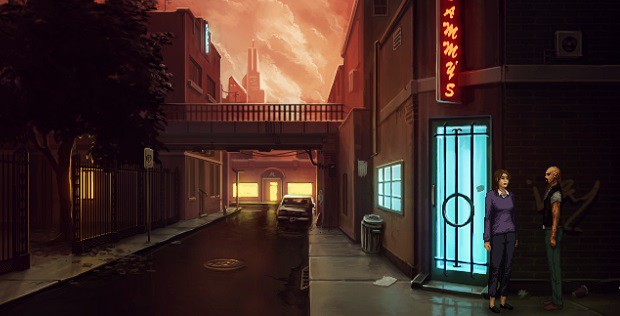
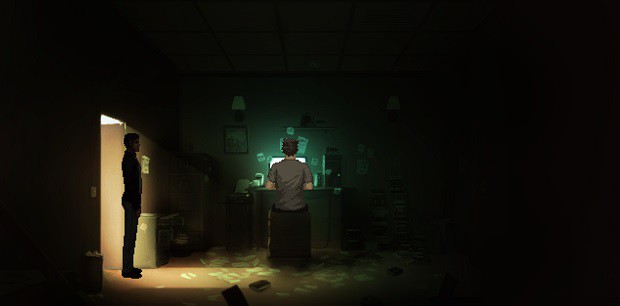



![Have Many Potato [2013] Codex 2013](/forums/smiles/campaign_tags/campaign_potato2013.png)


